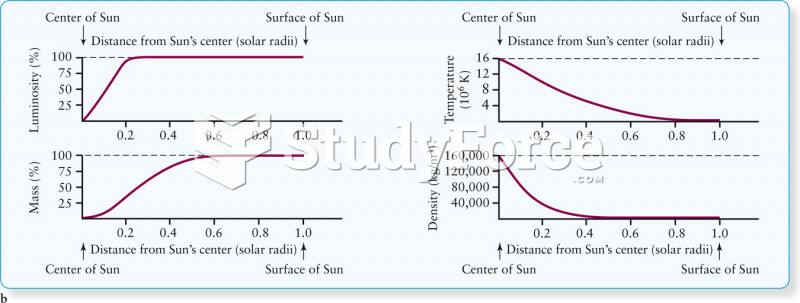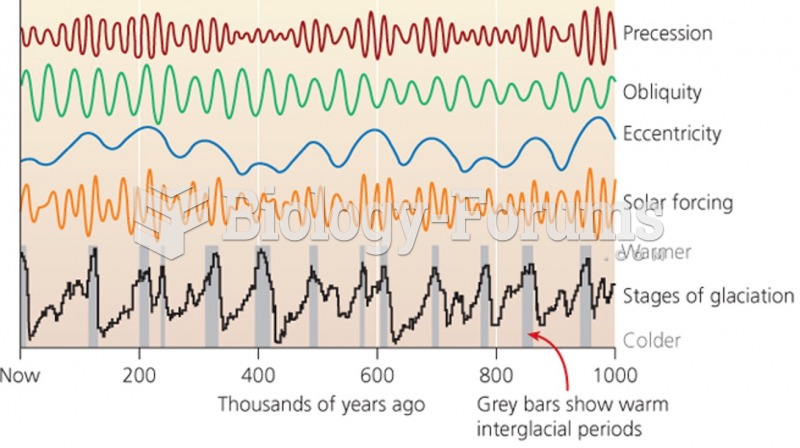|
|
|
Approximately 500,000 babies are born each year in the United States to teenage mothers.
Bacteria have flourished on the earth for over three billion years. They were the first life forms on the planet.
The calories found in one piece of cherry cheesecake could light a 60-watt light bulb for 1.5 hours.
A serious new warning has been established for pregnant women against taking ACE inhibitors during pregnancy. In the study, the risk of major birth defects in children whose mothers took ACE inhibitors during the first trimester was nearly three times higher than in children whose mothers didn't take ACE inhibitors. Physicians can prescribe alternative medications for pregnant women who have symptoms of high blood pressure.
Complications of influenza include: bacterial pneumonia, ear and sinus infections, dehydration, and worsening of chronic conditions such as asthma, congestive heart failure, or diabetes.







